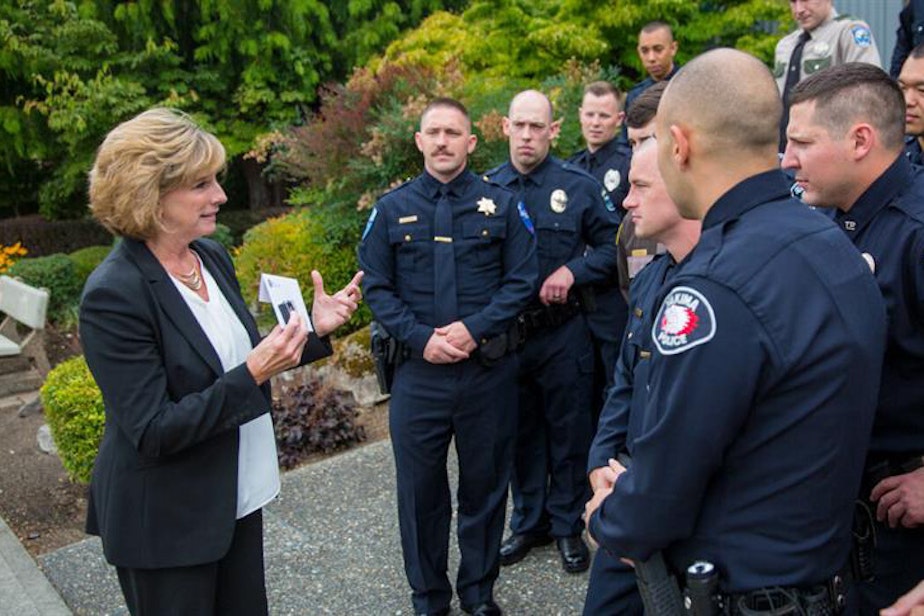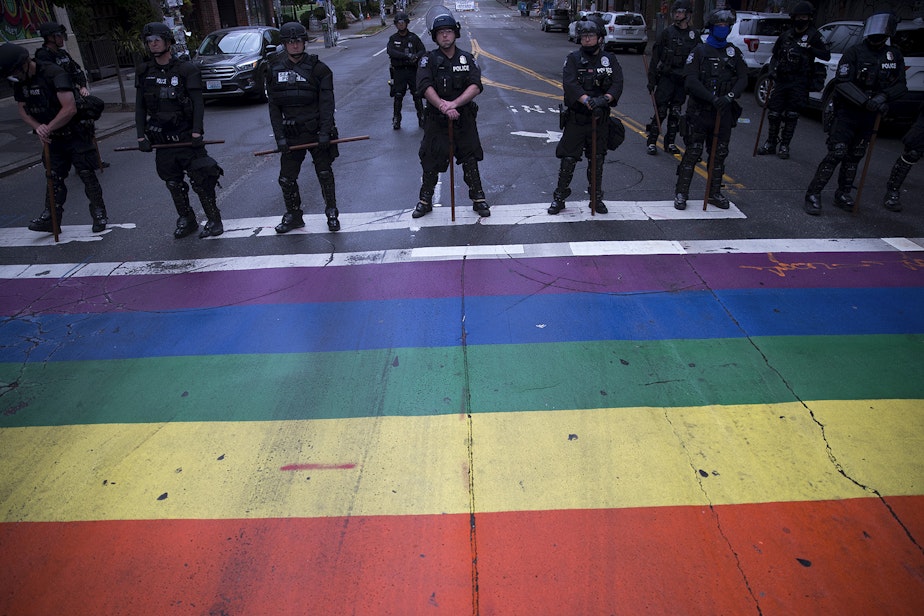Former King County sheriff sees 'a new era of policing'

Former King County Sheriff Sue Rahr says policing doesn't attract people who want to be the "hero" anymore — and that's a good thing.
Law enforcement officials and advocates in Seattle have blamed a negative public perception of police for difficulty recruiting and retaining officers.
"I think that definitely discourages the people coming into policing that do it because they want to be the hero and they want people to admire them," Rahr said. "I think we are reaching more recruits that want to come into this to do something good. They're not looking for the adventure and the hero status. They're looking at their community and saying, 'I want to make this better.'"
KUOW series: Seattle's policing dilemma
Those new recruits are looking at the profession in a different way, one that Rahr said gives her hope.
"We are at the front of a new era of policing," she told Soundside's Libby Denkman. "The people that we want to get into law enforcement in 2024, we're targeting a different demographic."
Things like the "Defund" movement of recent years are not the core of what's driving staffing challenges today, Rahr argued, and she urged caution for those who assume that's the case.
Sponsored
That may be news to officials like Mike Solan, president of the Seattle Police Officers Guild.
He recently spoke to KUOW, too.
Solan said progressive politics and a lack of support for police have undermined recruitment and retention efforts in Seattle.
“We mustn't forget about the ambitions of the activist class and how they want to paint police officers in this city," he said, though he's hopeful those "bad vibes" won't continue under the newly formed City Council, which is expected to more centrist than its the last incarnation.
Public perception of police is just a small piece of the story, though — the smallest, in fact, according to Rahr.
Sponsored
Rahr acknowledged the political climate today plays a role. But she said the tide was changing long before that.
RELATED: 'From the Central to the south,' Seattle neighborhoods ask for an engaged police force
"This didn't just start in 2020, after the murder of George Floyd. This trend started a decade ago," she said, referring to the decline in police recruits. "People tend to ascribe a cause to an event, and they may not be as connected as you would think."

Meanwhile, the conversation about what communities expect from police has changed.
While George Floyd's murder in Minneapolis sparked calls for community alternatives to policing and other services, Rahr said "we (as a society) have not properly funded a basic social service net, and things are falling apart."
Sponsored
Rahr now serves on the board of directors for the National Policing Institute, and she's made this point key to her efforts on police reform for the last few years.
"You can't call for alternative call-handling and not properly fund the alternative," she added. "We have to have a fundamental shift at the local, state, and national level about how we fund community safety. Police are just one piece of that community safety picture."
RELATED: Seattle police face reckoning over 'culture' in 2024 as federal oversight winds down
This interview with Sue Rahr was featured on an episode of Soundside. Listen here for the full conversation with more insights and perspectives around policing.


